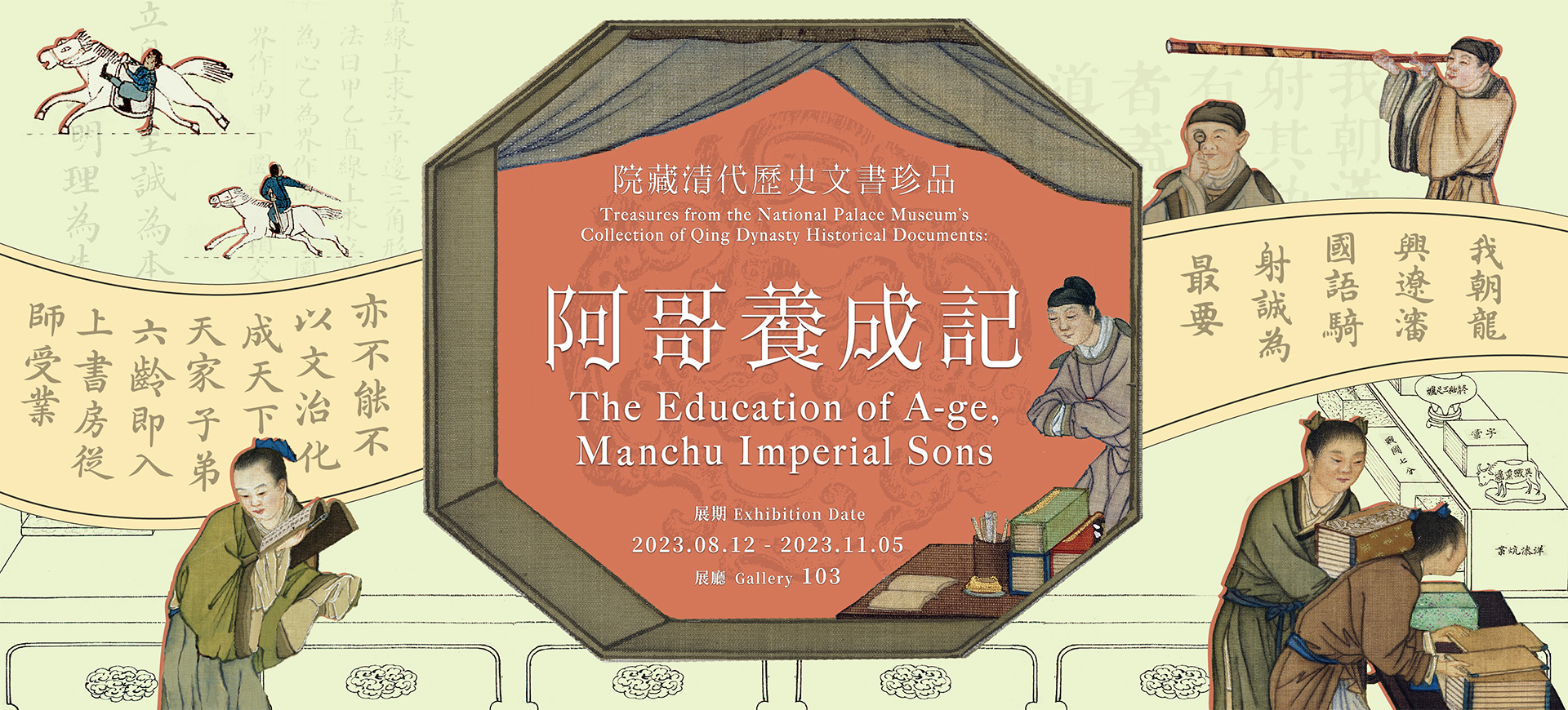The Teachers of A-ge
The education of A-ge were led by the headmaster, teachers, and adepts, as well as several accompanying readers (known in Manchu as “hahajuse”) and partner readers. Adepts (Manchu transcription: “anda”) refer to colleagues or friends responsible for teaching Manchu and Mongolian to A-ge as well as equestrian archery. Emperors and A-ge paid considerable respect to their teachers. According to a record in Zhuchuang Biji (Notes from Zhuchuang), teachers and A-ge would each clasp their hands in greeting when the former arrived in the lesson hall. And every day teachers and A-ge would shake their hands as a sign of the latter’s respect.
Since A-ge would spend so many years with their teachers from morning to night, they formed a very close relationship with their teachers. Even after ascending the throne later as emperor, he would often reflect back nostalgically on his time and interactions in studying with teachers and Anda. Take, for example, the Qianlong emperor. Besides his grandfather and father who influenced and shaped his life, he had several famous teachers during his time as prince, including those he respectfully referred to as the “Three Masters,” Fu Min (1673-1756), Zhu Shi (1665-1737), and Cai Shiyuan (1681-1734), who were imperial preceptors. The Qianlong emperor remembered them for the rest of his life, his expressions of gratitude often revealed in the works of poetry and prose that he wrote.
-
Daqing Gaozong Chunhuangdi Shilu (Veritable Records of the Great Qing Emperor Chun, Gaozong) in fasc
in fascicle 1324. Compiled on imperial order by Cinggūi (1737-1816), et al., Qing dynasty
Small red silk-bound Chinese edition
The first half of the 3rd month of the 54th year of the Qianlong reign (March to April 1789), Qing dynastyDuring the Qing dynasty, Study Room teachers and master teachers had to be well-learned scholars such as Hanlin Academy graduates and jinshi; they were also hand-picked by the emperors. The artifacts put on display here contain stories of scholars including Ji Juang, Wang Jie, Pan Shi’en, Mujangga, Weng Tonghe, and Li Hongzao who served as Study Room master teachers. In Veritable Records of Emperor Qianlong, there is an account of teachers not working in the Study Room in March 1789: During that month, for a stretch of six days, no master teachers and teachers entered the Study Room. The master teachers and teachers were all heavily punished for their dereliction of duty, showing how much Qing dynasty emperors valued their princes’ learning.
-
Weiyu Shushi Quanji Xu (Preface to The Complete Collection of Weiyu Study Room)
Emperor Renzong (1796-1820), Qing Dynasty
Imprint by the Imperial Printing Office, 6th year of the Jiaqing reign (1801), Qing dynastyThe “Studio of Lingering Flavors” in the Yuqing Palace where Emperor Jiaqing studied was named by his teacher Zhu Gui, who once stated that “for those who are eager to study, there are always enough to study from; and for those who are too lazy to study, there are always not enough to study from.” The “Preface” in Definitive Edition of the Complete Collection of the Studio of Lingering Flavors gives an account of Emperor Jiaqing’s study history, which states that the emperor “studied Confucian classics by the age of six, learned poetry by the age of 13, and composed on his own by the age of 17. The emperor studied day and night all year round. He learned poetic rules from dongshu teachers, and classical poetry and literature from shijun teachers.” Emperor Jiaqing learned under the tutelage of Zhu Gui, particularly in the writing of poems and reading of classical literature.
-
Last Memorial of Du Shoutian
Presented by Du Shoutian
18th day of the 7th month of the 2nd year of the Xianfeng reign (September 1, 1852), Qing dynasty, National Palace Museum collectionWhen Du Shoutian, Emperor Xianfeng’s teacher, died of an illness, the emperor wrote the following in a palace memorial: “I can still remember the time when I learned under your tutelage in the study room… with your passing, what you wish to see me become over the past 17 years is now gone. Your passing hurts me just as much as it hurts you,” showing how devastated the emperor was and how he felt that his teacher’s expectations of him all vanished with his passing.


